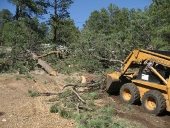





below is the link to the video I mentioned with Helen Atthowe of Biodesign Farm in Montana, followed by an article about her experiments with organic no-till farming:
Organic No-Till Living Mulch Intro: Weed Em and Reap
www.youtube.com/watch?v=zis8Hb-VDTo
 2
2
















My Blog, Natural History and Forest Gardening
www.dzonoquaswhistle.blogspot.com
"Listen everybody, to what I gotta say, there's hope for tomorrow, if we wake up today!" Ted Nugent
"Suck Marrow" Henry D Thoreau
















Oh, black plastic... I see haha
isn't fukuoka and holzer doing something totally different?

she may be cutting out human effort, but a lot of it is replaced with machines and modern conveniences




















Writing from Madhuvan, a yoga retreat/organic farm on the West Coast of Costa Rica.








Writing from Madhuvan, a yoga retreat/organic farm on the West Coast of Costa Rica.








Writing from Madhuvan, a yoga retreat/organic farm on the West Coast of Costa Rica.
















Writing from Madhuvan, a yoga retreat/organic farm on the West Coast of Costa Rica.

























paul wheaton wrote:
A new podcast with helen:
http://www.richsoil.com/permaculture/296-podcast-032-helen-atthowe-sustainability-efficiency/
 1
1




Thanks for building this forum, Paul.
 1
1




Kegs wrote:
I like the idea of a continuous harvest. It can work just like we think it can - but the idea is ahead of the society.
Idle dreamer








 I have been gardening since the early 50's and have only discovered recently that some of my "experiments" were meager attempts by a young boy at "forest gardening" and permaculture. I just thought I was gardening. How could I have known that is was something else? I was in elementary school. It is really sad to hear how excited that alfalfa grower was to plant GMO garbage. I cannot live around such vast expanses of chemically dependent agriculture. It makes me suicidal. That's why I left California in '86 and came back to the east coast. I know it is here too but not on such a grandiose scale. Anywho.........great discussion Paul I truly enjoyed it.
I have been gardening since the early 50's and have only discovered recently that some of my "experiments" were meager attempts by a young boy at "forest gardening" and permaculture. I just thought I was gardening. How could I have known that is was something else? I was in elementary school. It is really sad to hear how excited that alfalfa grower was to plant GMO garbage. I cannot live around such vast expanses of chemically dependent agriculture. It makes me suicidal. That's why I left California in '86 and came back to the east coast. I know it is here too but not on such a grandiose scale. Anywho.........great discussion Paul I truly enjoyed it."When there is no life in the soil it is just dirt."
"MagicDave"
 1
1




H Ludi Tyler wrote:
Part of this is learning to eat new things. Most of the current human diet is made up of something like 6 crops, when there are hundreds (thousands?) that are edible. But learning to eat unusual plants takes some doing.
Thanks for building this forum, Paul.




paul wheaton wrote:
I visit with Helen Atthowe, goddess of the soil and longtime Missoula County Horticultural Extension Agent. We start off talking about compost. She is the most advanced composter I know. And we talk about how composting doesn't have to be as difficult as people make it out.
We also talk about compost tea. Especially when it is of value and when it is not.
Helen talks about her horticultural philosophy which she calls veganic permaculture.
Helen and I then explore the space of veganism in general.
We also talk about how some native plants people stand against permaculture.
podcast 015




Kegs wrote:
To those thinking the organic permaculture system is the way to go, I'm with you. I 100% support using this system where it is possible to use it - but it is absolutely not possible to use it everywhere.
Idle dreamer





Wm. Brookover~ Opinion's given at no extra charge

|
Talk sense to a fool and he calls you foolish. -Euripides A foolish tiny ad:
Our PIE page has been updated, anybody wanna test?
https://permies.com/t/369340/PIE-page-updated-wanna-test
|






